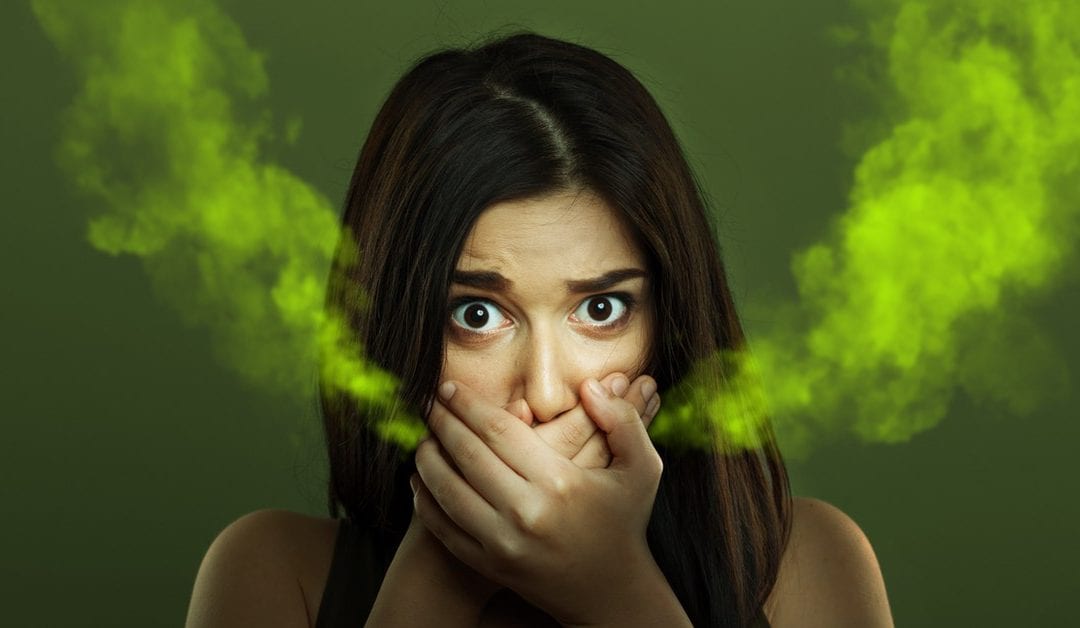Halitosis, commonly known as bad breath, can be a source of embarrassment and social discomfort for many individuals. While occasional bad breath is normal, persistent or chronic halitosis may indicate underlying oral health issues that require attention. In this article, we explore practical tips and effective strategies for managing and achieving fresh breath confidence.

Understanding Halitosis:
Halitosis is characterized by unpleasant odors emanating from the mouth, often caused by bacteria breaking down food particles and releasing foul-smelling gases. Common causes of include poor oral hygiene, dental problems, dry mouth, certain foods and beverages, smoking, and underlying medical conditions such as gum disease, sinus infections, or digestive disorders.
Effective Strategies for Managing Halitosis:
Maintain Good Oral Hygiene:
Brush teeth thoroughly twice a day with fluoride toothpaste to remove plaque, bacteria, and food particles from teeth, gums, and tongue.
Floss daily to clean between teeth and along the gumline, where bacteria and food debris can accumulate.
Use a tongue scraper or brush to clean the surface of the tongue, where odor-causing bacteria often reside.
Rinse with an antimicrobial mouthwash to reduce bacteria and freshen breath. Choose a mouthwash containing ingredients such as chlorine dioxide, cetylpyridinium chloride, or essential oils.
Stay Hydrated:
Drink plenty of water throughout the day to maintain saliva production and prevent dry mouth, a common cause of halitosis. Saliva helps rinse away food particles and bacteria, neutralize acids, and moisten the mouth.
Limit consumption of dehydrating beverages such as alcohol and caffeine, which can contribute to dry mouth and exacerbate bad breath.
Watch Your Diet:
Avoid foods known to cause bad breath, such as garlic, onions, spicy foods, and strong-smelling spices. These foods contain volatile compounds that can linger in the mouth and contribute to hali 1tosis.
Consume a balanced diet rich in fruits, vegetables, and whole grains, which promote good oral health and digestion. Crunchy fruits and vegetables, such as apples and carrots, can help clean teeth and stimulate saliva production.
Quit Smoking:
Smoking and tobacco use not only stain teeth and contribute to gum disease but also dry out the mouth and leave a lingering odor. Quitting smoking can significantly improve oral health and freshen breath.
Address Dental Issues:
Schedule regular dental check-ups and cleanings to detect and treat dental problems such as cavities, gum disease, and dental infections that can contribute to bad breath.
Follow your dentist’s recommendations for treating underlying dental issues, such as restoring decayed teeth, treating gum disease, or addressing oral infections.

Manage Medical Conditions:
If halitosis persists despite good oral hygiene habits, consult a healthcare professional to rule out underlying medical conditions such as sinus infections, respiratory infections, acid reflux, or digestive disorders that may contribute to bad breath.
Follow medical advice and treatment recommendations to manage underlying health issues and alleviate halitosis symptoms.
Practice Good Habits:
Avoid mouth-breathing, as it can contribute to dry mouth and exacerbate halitosis. Breathe through your nose whenever possible to maintain moisture in the mouth.
Chew sugar-free gum or suck on sugar-free mints to stimulate saliva production and freshen breath temporarily. Look for products containing xylitol, which has been shown to inhibit bacterial growth and reduce bad breath.
Halitosis can be a distressing condition, but with proper oral hygiene practices, healthy habits, and professional dental care, it is usually manageable. By maintaining good oral hygiene, staying hydrated, watching your diet, quitting smoking, addressing dental issues, managing medical conditions, and practicing good habits, you can conquer halitosis and enjoy fresh breath confidence. If halitosis persists despite your efforts, consult a healthcare professional or dental provider for further evaluation and personalized treatment recommendations.
The Negative Impacts of Halitosis: Understanding the Consequences of Bad Breath
Halitosis, commonly referred to as bad breath, can have nanastoto far-reaching consequences beyond the discomfort of unpleasant odor. Beyond its social and psychological impacts, chronic hali tosis may signal underlying oral health issues that require attention. In this article, we explore the adverse effects of halitosis on various aspects of life and well-being.

1. Social Stigma and Psychological Distress:
Chronic halitosis can lead to social stigma, embarrassment, and psychological distress for individuals affected by it. The fear of being judged or ridiculed due to bad breath can erode self-confidence, limit social interactions, and affect personal relationships. Individuals may avoid close contact with others, such as speaking face-to-face or participating in social activities, leading to feelings of isolation and loneliness.
2. Impaired Professional Relationships:
In professional settings, halitosis can negatively impact interactions with colleagues, clients, and supervisors. Persistent bad breath may create an unfavorable impression in the workplace, hindering career advancement opportunities and undermining professional relationships. Individuals with hali tosis may feel self-conscious during meetings, presentations, or networking events, affecting their confidence and performance.
3. Relationship Strain:
Halitosis can strain personal relationships, including romantic partnerships, friendships, and family dynamics. The discomfort and embarrassment associated with bad breath may lead to communication barriers, decreased intimacy, and relationship conflict. Partners or family members may find it challenging to address the issue sensitively, leading to misunderstandings and resentment.
4. Reduced Quality of Life:
Chronic halitosis can significantly impact an individual’s quality of life, affecting their emotional well-being, social interactions, and overall satisfaction. The constant worry about bad breath can consume thoughts and energy, detracting from enjoyment of daily activities and experiences. Individuals may become preoccupied with masking or concealing bad breath, leading to increased stress and anxiety.
5. Oral Health Complications:
Persistent bad breath may be indicative of underlying oral health issues that require attention. Conditions such as gum disease, tooth decay, oral infections, dry mouth, and poor oral hygiene can contribute to halitosis and may worsen if left untreated. Ignoring the underlying causes of bad breath can lead to more significant oral health complications, including tooth loss, gum recession, and oral infections.
6. Professional Limitations:
In some professions, such as customer service, sales, or hospitality, maintaining fresh breath is essential for success. Individuals with chronic halitosis may face professional limitations or discrimination due to their condition, impacting career prospects and opportunities for advancement. The inability to address bad breath effectively may hinder job performance and professional reputation.
7. Impact on Personal Hygiene:
Chronic halitosis can affect personal hygiene habits and self-care routines. Individuals may become overly preoccupied with oral hygiene practices, such as excessive brushing, flossing, or mouth rinsing, in an attempt to mask or eliminate bad breath. This obsession with cleanliness can lead to oral health issues, such as gum recession, enamel erosion, and oral tissue damage.
Conclusion:
Halitosis can have profound negative impacts on various aspects of life, including social relationships, emotional well-being, professional success, and oral health. Addressing chronic bad breath requires a comprehensive approach that includes identifying and treating underlying oral health issues, adopting effective oral hygiene practices, and seeking professional guidance when necessary. By addressing halitosis proactively and holistically, individuals can improve their quality of life, restore self-confidence, and enjoy fresh breath confidence.
Read More Article About “Jiu-Jitsu Competitions: Thriving in the World of BJJ Tournaments“



